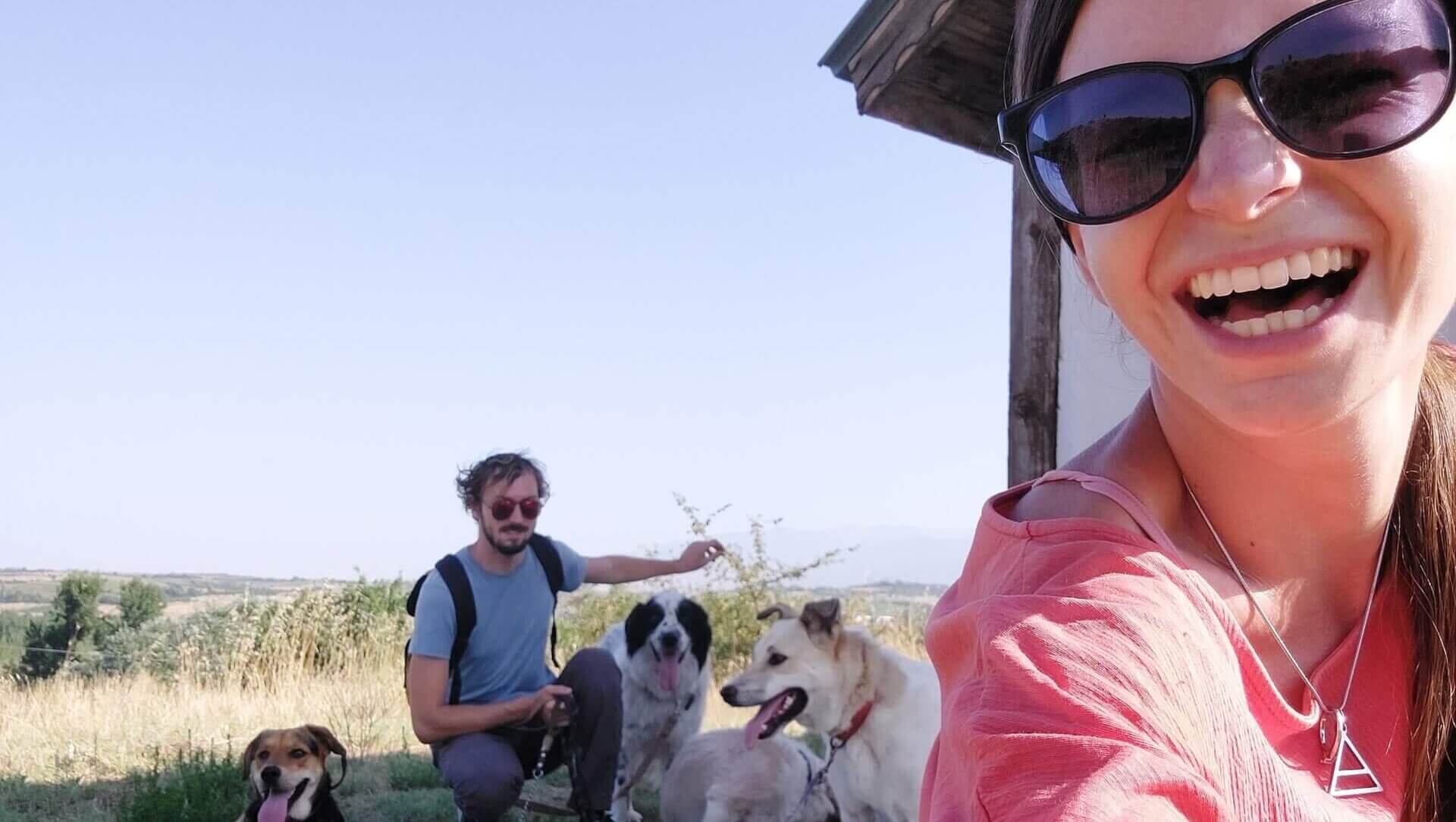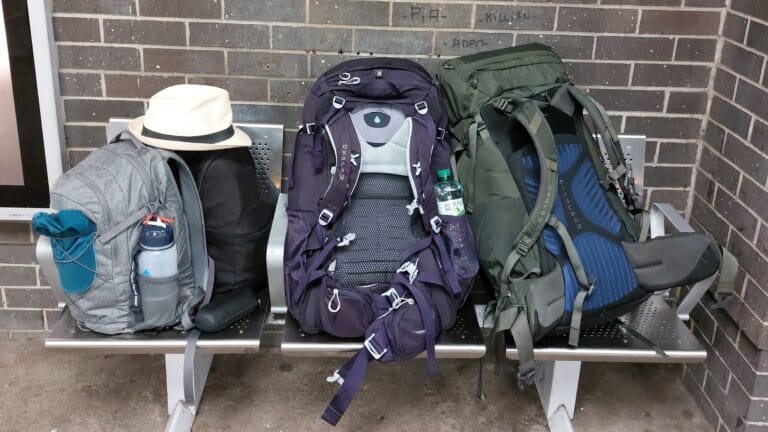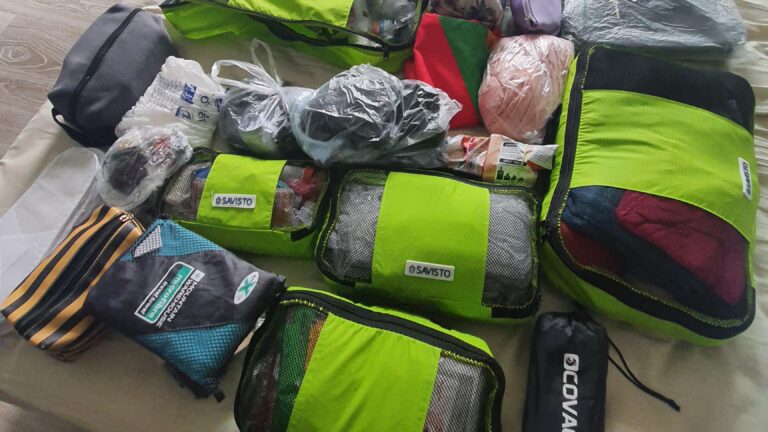You’ve probably heard of volunteering abroad – the mysterious travel hack that lets you explore amazing places for free.
But as a volunteer beginner, you might have doubts and you might have questions – it’s understandable!
We also had doubts when we started looking into volunteering abroad for the first time.
But do you know what?
We managed – we spent 3 months volunteering in the beautiful Italian and Bulgarian countrysides. And you can have an amazing experience too!
In this guide, we’ll tell you all you need to know to volunteer abroad for the first time – including tips and hacks from our own experience!
This post may contain affiliate links. For more information, please read our Disclaimer.
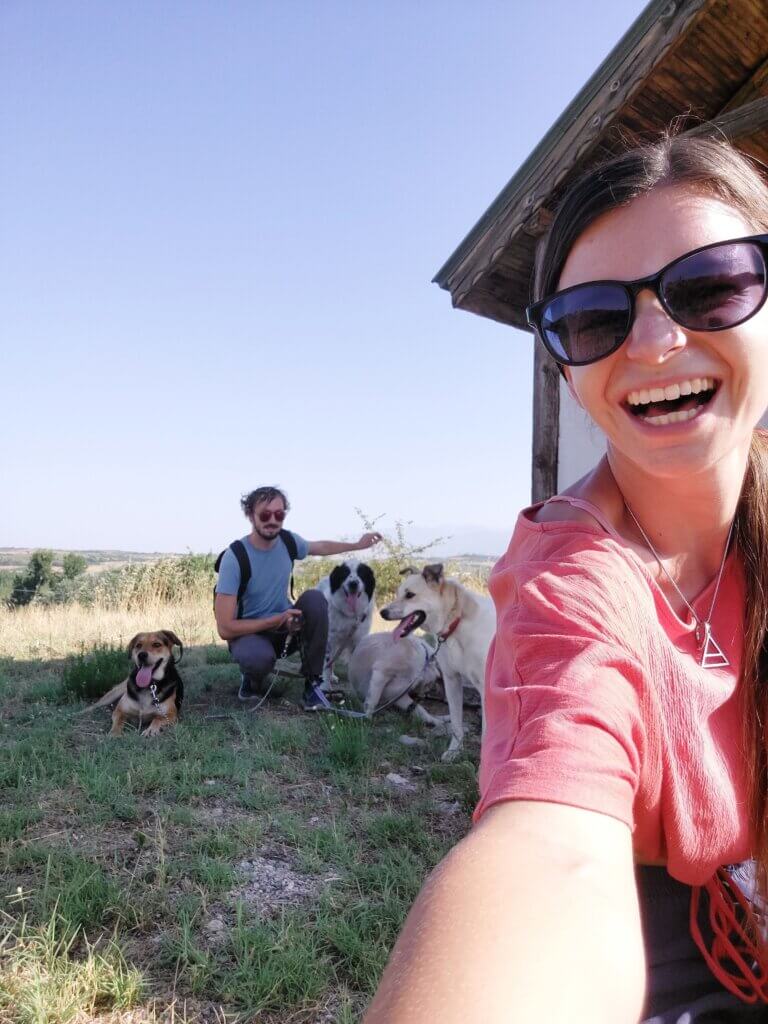
Here’s a little bit about our journey, if you are new here! If you know us, feel free to skip this part.
After leaving our old life in Scotland in March 2022 (it rains too much there), we travelled full-time for almost 2 years. Sounds fancy, doesn’t it? Well, it was. If you think that carrying overpacked backpacks in 45°C heat around streets that aren’t even on Google Maps is fancy. And that’s just 1% of all the fun we had! 😆
During the 2 years we volunteered in Italy and Bulgaria (free travel while learning new skills, anyone?), explored other amazing European countries and backpacked Southeast Asia. Btw, even our secret wedding was more of an expedition than a wedding. 😅
And, of course, we researched and planned everything ourselves, because you gotta keep the budget low, right? If you are like us, you’ve come to the right place, because we want to share all the useful travel tips and info with you!
Excited? Good. Let’s get into it so you can go on your own epic adventures too!
Volunteering abroad for beginners – what you should know
We wanted to address a common concern right at the start, in case it wasn’t letting you sleep at night. Because no one needs bags under their eyes from worrying about volunteering abroad! 😬
So here is the main message we’d like to share:
You can do it.
If you are curious about volunteering and you want to give it a go, you absolutely can.
Almost anyone can do it. (We say almost, taking into account medical conditions and other limitations).
We hope that this guide answers all your questions about volunteering abroad for the first time. If not, DM us on our Instagram or ask in the comments below!
Warning
This is a guide for volunteering abroad, in the sense of doing work for which you are not paid, but for which you receive food and a bed in exchange.
Be careful, because there are many companies out there offering “volunteering” opportunities when, in reality, you actually have to pay them for the privilege of doing work for them!
Think that sounds crazy?
Just google “volunteer with elephants projects”. The fees you see there? That’s not how much they will pay you. That’s how much you will pay THEM.
There are many more projects like this out there, so always check whether the one you are signing up for is a true volunteering abroad experience or if it’s work for which you will end up paying.
Want to make sure you are not getting scammed and are staying safe?
Use one of the established volunteering platforms. You can find a list in this guide.
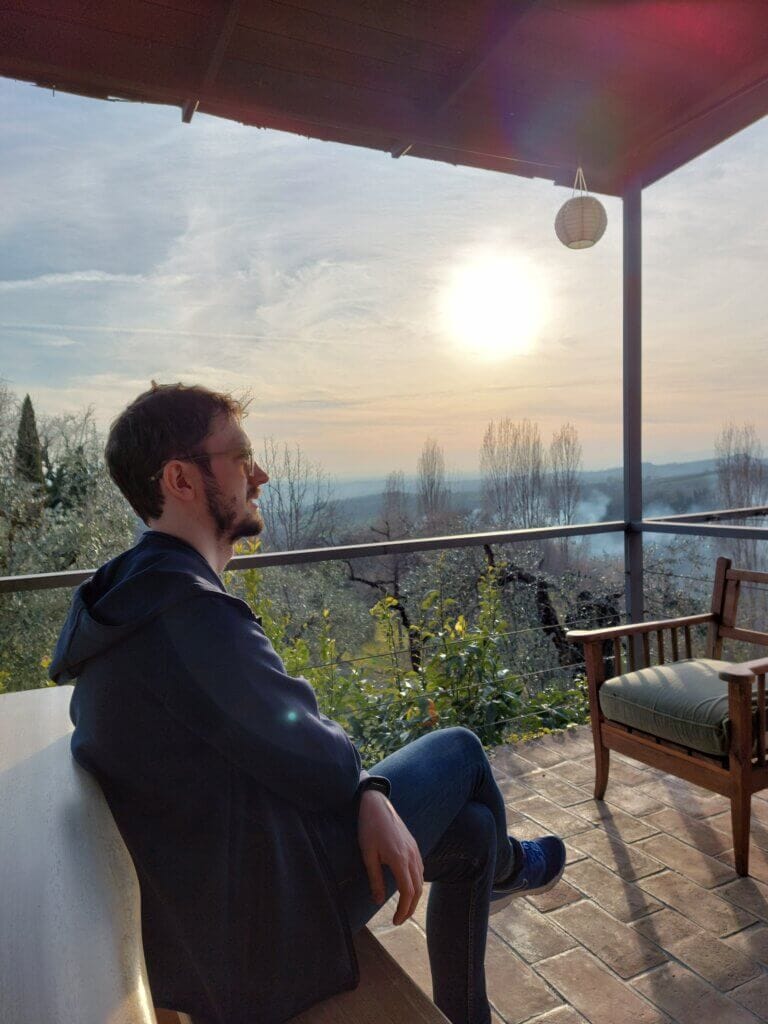
What is volunteering?
Volunteering abroad simply means doing volunteer work in exchange for food and accommodation.
But don’t confuse this with free labour!
The whole exchange should go beyond simply working for food and board. It should be about learning/developing skills, cultural exchange, making new friends etc.
Why should you go volunteering abroad?
To become a better person, you grumpy prune!
Kidding!
But yes, ending up on Santa’s nice list is one of the perks.
Jokes aside, we get it. You probably already work in a job and so now you are wondering why you should be working for free. And possibly on your holiday too!
Well, here are a few reasons why you might consider volunteering (let’s see if they change your mind):
- You do something good. For yourself. For the host. And maybe even the planet. How? Well, as we mentioned above, volunteering should mean learning or developing your skills. If not, you should at least be putting your existing skills to good use – helping a community or another person. And if you pick a sustainable eco project, you are helping the planet too!
- It’s a more unique way to travel. How many people can say they have seen the Colosseum? Many. But how many can say they spent their holiday exploring the Italian countryside with locals? See what we mean? It will make for a better icebreaker story the next time you are at a work teambuilding event (side note: why are these icebreakers still a thing? Why do we like to put ourselves through such torture??).
- It’s a more sustainable way to travel. Hosts often prefer volunteers who stay for longer, encouraging slow travel. As a volunteer, you will do things as locals do, rather than being a typical tourist. And you will learn firsthand about the local community, culture and the people!
- It’s a more adventurous way of travelling. If lying on a beach for 2 weeks isn’t for you (we are not judging. Daniel also struggles with this kind of holiday), this might be an ideal solution.
- Equally though, it can bring stability to full-time travel. Even though it might sound like a dream, full-time travel can be super tiring. Especially if you are backpacking and constantly on the move. If you are craving a bit of a routine, stability and slowing down during your travels, find a longer volunteering opportunity. It can be 2 weeks or 2 months, it depends on what you need and what hosts are looking for.
- We’ve already said this a few times, but you can learn many new skills. If you pick the right host. More on this below.
- You can try on a different life. Who would you be if you lived on a farm in Bulgaria? Or on a boat in the Netherlands? Or ran a hostel in Costa Rica? Perhaps you are curious about permaculture but don’t want to actually go fully in and do it at home? Why not volunteer with a family who is just starting their journey with permaculture – you can learn with them from the beginning and see if it’s the right thing for you. The options are endless!
- It is kinda free travel. Kinda. You do have to work, but again, if you pick well, the volunteer work should not feel like work and you should get a lot more in exchange (not talking about material things here. We are talking about the value of the experience, the friendships you make, places you see etc.).
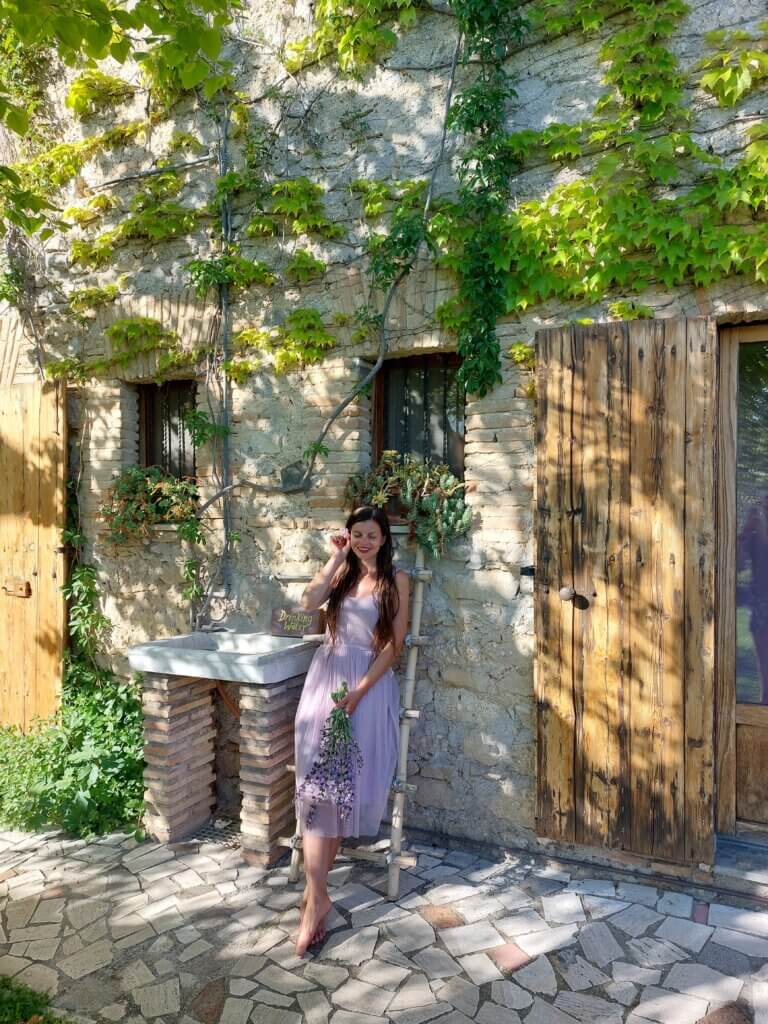
How does volunteering work?
The basic idea is, you work for around 4-5 hours, around 5 days a week, in exchange for accommodation and food.
You should have 1 or 2 days fully off, so that you can explore the area, travel the country, try new experiences etc. – that’s also all part of the volunteering experience. We’ll say it again – volunteering abroad is not meant to be free labour.
In reality, each host has their own requirements and rules.
It’s important that you read these before you contact the host, so you don’t waste your and their time (read them in their listing).
Make sure you understand how much work is expected of you and what you will get in exchange.
It’s okay if your host is a chilled-out person who says the actual work will be decided day by day. If you are cool with that, go for it. This part is not that important, as long as the host knows what your skills and abilities are.
What is important is to agree on the general rules – how many hours you are expected to work and what you will get in return.
Make sure to get this confirmed in writing, just to be safe. If your host agrees to chat on a video call, great, but do confirm key details via email too (you can send a follow-up email summarising the key things you’ve discussed on the call. Just make sure you get a written answer from the host confirming that they agree with what you discussed and wrote).
A real-life example
Here is an example:
In the ad, your host says you are expected to work 4-5 hours a day, doing manual work in the garden, such as picking fruit and weeding, in exchange for food and a bed.
In this case, email them to clarify:
- How many days a week you will be working and how many you will get off
- Which meals are covered – breakfast/ lunch/ dinner
- What kind of accommodation is provided (don’t just assume a bed means a nice room with an ensuite bathroom. More often than not it doesn’t.)
And make sure to get all this in writing.
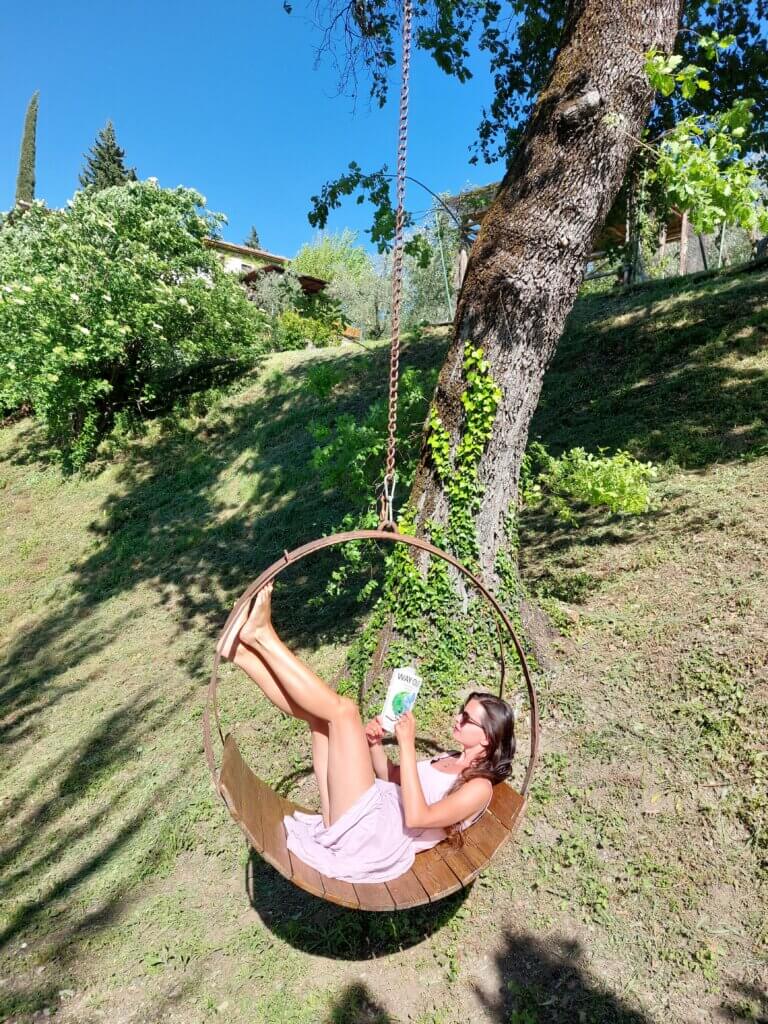
How long can you volunteer abroad for?
If you are wondering how long you can actually be volunteering for, here are the 3 factors that decide this:
- You – First of all, you should decide how long you want to and can volunteer for. Start with this and then see if you can find a host that matches that.
- Host – Next, see what hosts are looking for. Some hosts prefer volunteers to stay longer – they will mention this in their listing. This can be because they have a project they want to make sure gets finished by the same volunteer. Or it might be that they need to teach their volunteers specific skills to do the jobs. And let’s face it, no one wants to be teaching a new volunteer every week!
- Legal restrictions – Always take into consideration how long you can stay in a particular country when volunteering abroad. Don’t overstay your visa or other limits, as you might get yourself and your host in trouble. Remember that you can always look for volunteering opportunities in your home country too.
Tip for first-time volunteers
If you are a volunteering abroad beginner and you are not 100% sure whether you’ll enjoy the experience, do a short stay. Don’t arrange to stay somewhere for a month. Find a host that is happy to have you for a week.
Once you are sure volunteering abroad is something you want to do more of, you can find hosts who are happy to have someone long-term.
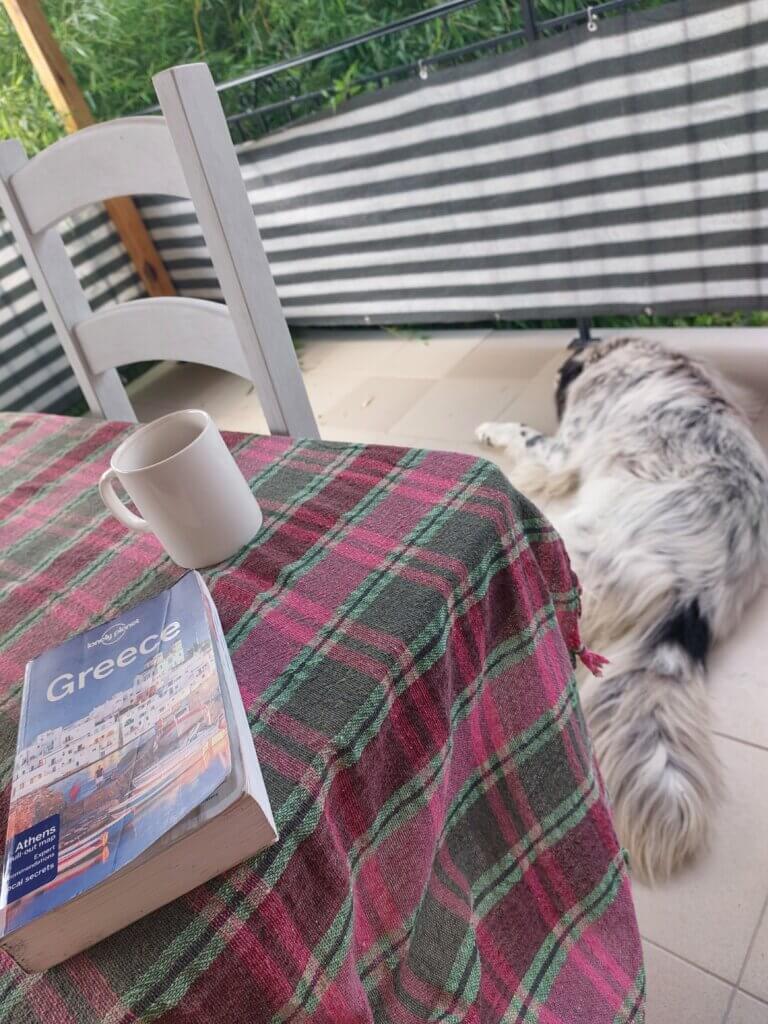
Where can you find volunteering opportunities?
There are 2 main places where you can find projects you can volunteer on:
Place no 1: Real world
If you are already travelling, don’t forget to:
- Pay attention to volunteering opportunities. Cafes, libraries, schools etc. will often put up info on their notice boards or websites for potential volunteers
- Ask other travellers whether they have volunteered anywhere. You might be surprised how many people have or at least know about volunteering opportunities
Place no. 2: Online platforms
There are many platforms which offer volunteering opportunities, and you can guess what we’ll tell you to do.
Yep. If you know us, you have guessed it.
Research.
Have a look at the different platforms and pick one which suits you the most.
Here is a list of platforms you might wanna consider:
- Workaway
- Grassroots Volunteering
- WWOOF
- HelpX
- All Hands and Hearts
- HippoHelp
- Worldpackers
- Volunteers Base
- Trustroots
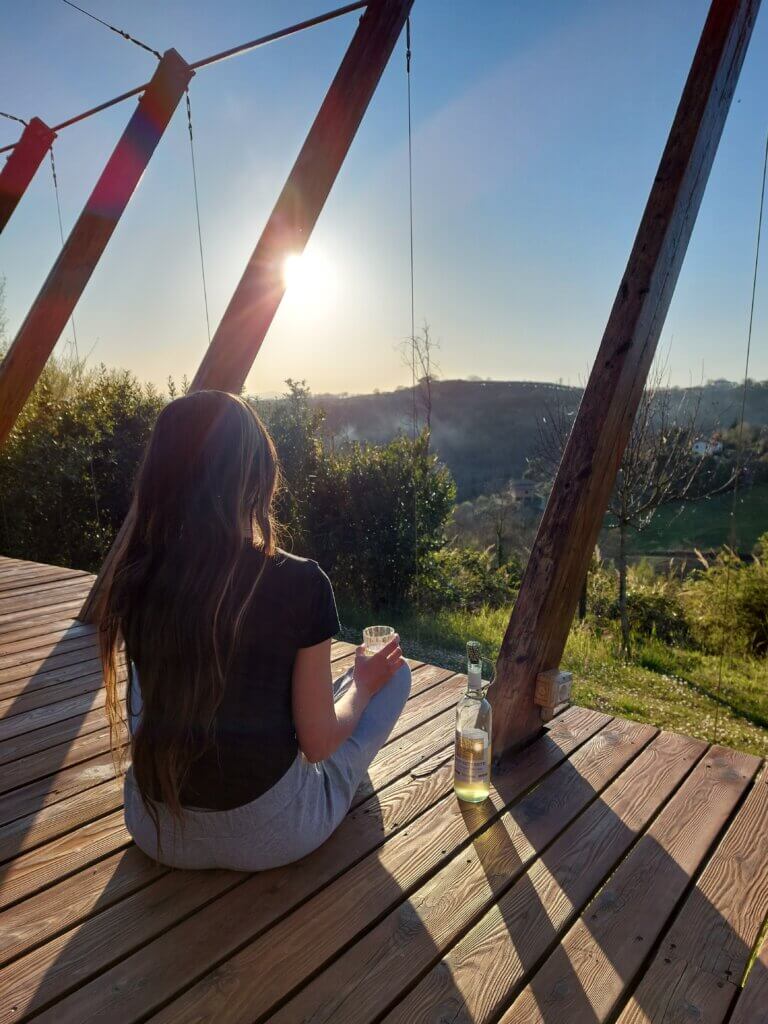
What to consider when picking a volunteering platform
Fee
Most of the platforms that offer volunteering opportunities charge a membership fee. Some, such as HelpX, let you have a look at the different options on a free account, but you will have to get a premium membership if you want to actually contact the hosts.
What you should do is compare the different platforms and their fees.
Remember that paying a higher fee doesn’t always mean a better service.
Another thing to consider is how long the membership is valid for.
How many times will you realistically volunteer during that time period? Is it worth the membership fee for you? Consider this.
A note on free platforms
Some volunteering platforms are free. Bear in mind that this often means that they offer fewer services. For example, they might not be doing host screening or offering 24/7 customer service support. Consider what is important for you and what level of safety you are able to cope with, especially if you are volunteering abroad for the first time.
Safety
As we mentioned above, safety is often a big concern. After all, you will possibly be staying with a stranger in their house. Possibly even in the middle of nowhere, with no signal or neighbours.
Check what the platform is doing to ensure safety. Are they screening applications? Do you and the hosts need to provide an ID at registration? Do hosts need to get approved before they can post? Is there a 24/7 support team available should you have any issues?
Think about what would make you feel safe enough and choose accordingly.
Size of the platform
Some platforms have hundreds of volunteering opportunities. Some have just a few.
Bigger doesn’t always mean better, though.
Why?
Well, if you go to a big, popular platform, such as Workaway, it does mean there will be many opportunities. But, equally, it means there will be many volunteers competing for them.
A smaller, lesser-known platform might be a better option, especially if you are looking to volunteer for the first time and you don’t have any previous volunteering references.
The platform we use
Of course, we’ve done our research before we picked the right volunteering platform for us. You know we like to research.
In the end, we chose HelpX.
Why?
- It’s a smaller, not very well-known platform, though the number of options can still be overwhelming and the competition for good volunteering opportunities can still be tough.
- Their site is a good mix of professional but not over-the-top fancy (the UX is quite old-school though, just to warn you).
- The cost. Their membership is just €20 AND it lasts for 2 years AND you can have a twin membership if you are a couple. For us, this was the best deal.
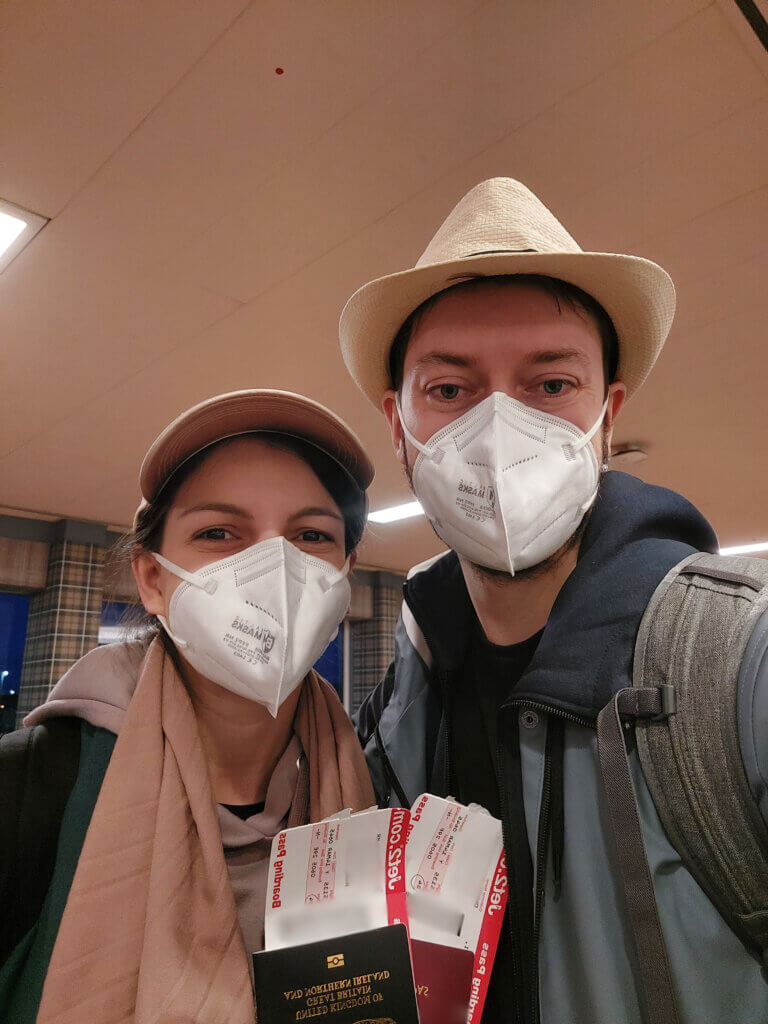
Types of jobs you do when volunteering abroad
When we mention volunteering, people always want to know about the kinds of jobs you actually do when you volunteer.
This, of course, depends on where you volunteer, what your skills are and what your host needs help with.
So we can’t tell you what you’ll end up doing. But we can share our experience with you.
Here are some of the tasks we were doing when volunteering (some are much better than others 😆):
- preparing and serving breakfast for guests
- pool cleaning
- creating floral arrangements
- bathroom cleaning
- welcoming guests
- running a gift shop
- gardening
- bottling beer and wine
- dog walking
- creating marketing materials
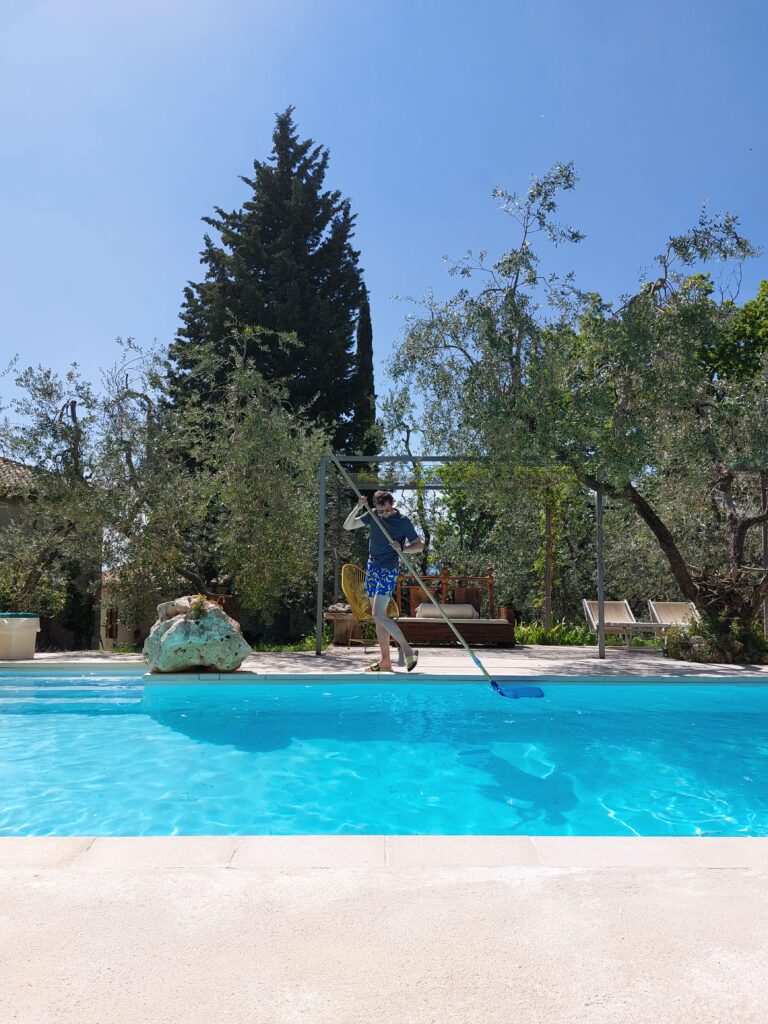
How it works
Sometimes, hosts know exactly what they need help with.
This can be seasonal or a current project they have – e.g. harvesting in autumn or building a new shed. Hosts are often looking for volunteers if a project comes up that they need help with for a bit – for example, a carpenter for that new shed.
Or it can be that they always need the same type of help. For example, if it’s a family-run B&B, they might always need someone to check guests in, make beds and clean bathrooms. So no matter what time of the year you apply at, the jobs will be the same.
There are many cases though, when hosts don’t know what exactly they’ll need help with. In that case, they will tell you a bit about their home or business and the projects they are working on. You, on the other hand, share your skills and experience, and then you’ll see if you might be a good fit for them.
This is, obviously, a bit riskier, as the host can then ask you to do jobs you might not enjoy or want to do.
Here is what we would advise:
- Be clear on what your skills and experience are when applying
- Ask questions about the type of work that will be expected of you
- If you are not happy doing certain jobs (e.g. cleaning bathrooms), make sure you discuss this with the host in advance
- Get all key information in writing so you can refer to it later, if needed
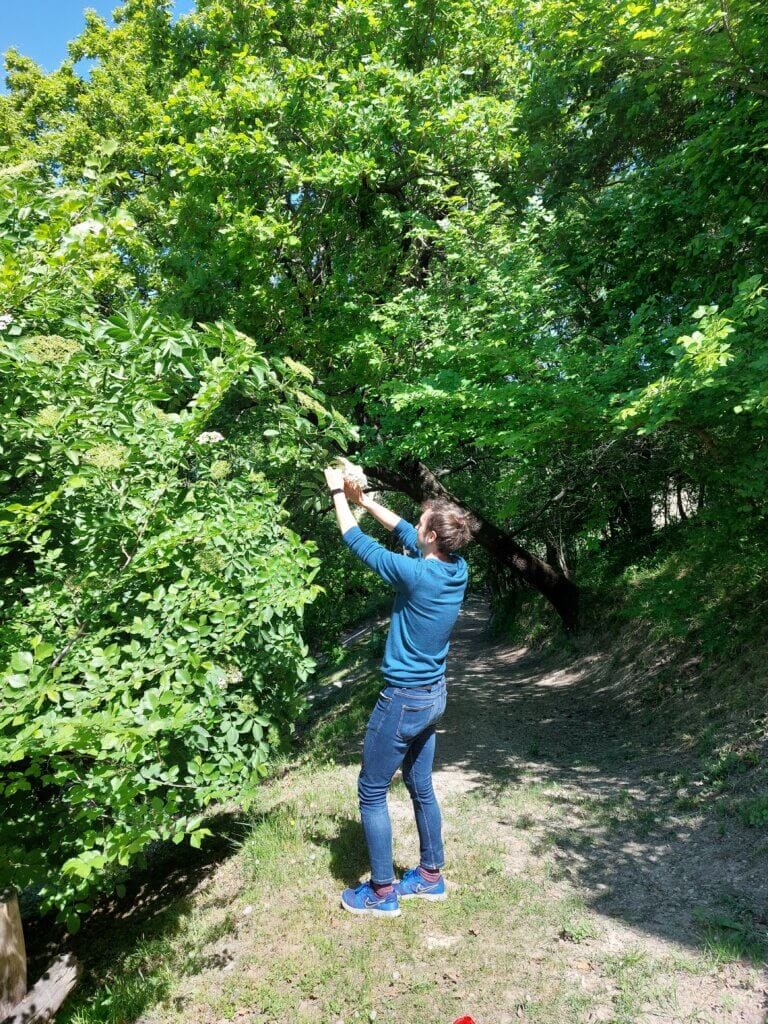
Picking the right host
One of the biggest worries people have when it comes to volunteering?
Picking a host that turns out to be… well, not good.
We are not going to pretend that is not a possibility.
It happened to us.
In fact, our first host experience was a negative one. Majorly negative.
The good news? There were red flags from the start. It was like the circus had rolled into town. We just chose to ignore them. So there’s plenty you can do to protect yourself and avoid making the same mistake. 😅
Something to remember
Picking the right host is a bit like looking for a job. You have limited information and you try to make a good decision based on that.
Your host is in a similar position though. Remember that they will open their home up to a stranger. Share their food with them. Possibly have them taking care of their children.
So, while you are trying to find out as much as you can about the host to ensure you make the right decision, remember that you also have to sell yourself as the right person for them.
Tips on picking the right host
Here are some of the things we do and other tips you might want to consider, especially if it’s your first time volunteering:
- Only consider hosts with photos in their listing, including a photo of them (not that you should judge a book by a cover, but you should use all the info you can get).
- Only consider hosts with multiple reviews.
Side note here: we’ve heard that many people, sadly, don’t give truthful reviews. This happens, especially if they had a negative experience, as they are worried they’d get a bad review back and they don’t want to be seen as complainers either. Annoying, since that is the very case when other people could use the info that the host might not be the best!
What you can do if you are not sure about the reviews: You can always message previous volunteers directly to ask for their opinion in private, if you are unsure about the public review they posted. - Consider families instead of businesses. This doesn’t guarantee you won’t have a bad experience, but there are more negative stories about hostels, hotels etc. mistreating volunteers/treating them like free labour.
- Get the terms/requirements in writing. By this we mean what is expected of you and what you’ll get in return.
- Ask lots of questions before committing.
- Pick a place where you won’t be reliant on the host in terms of transport, so you can leave earlier, should you wish to do so (so avoid remote farms etc.).
- Pick a place with a good description. A host that has a well-written listing detailing the work needed and what they are offering in exchange is less likely to be problematic later on.
- Volunteer with someone. Many hosts can only accept one volunteer, but there are others who’ll take a couple or two friends. Sometimes even more!
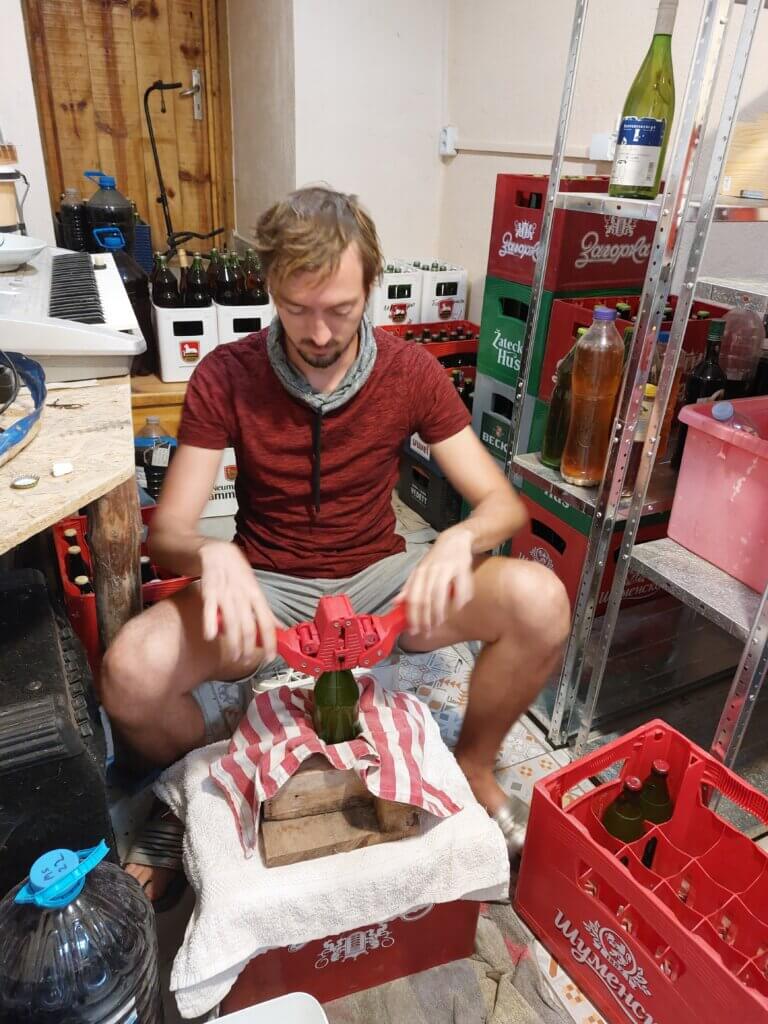
Important note
While all of these different things are helpful in assessing the hosts, it’s not a 100% guarantee.
Sometimes, a listing can be short and poorly written, but you will have the best experience. It might just be that the host is older, doesn’t speak English well and isn’t that good with computers.
On the other hand, sometimes a lengthy, detailed listing might be an indication that the host is a micromanager who will be checking every single thing you do (and criticising it) (we might be speaking from experience here).
So use our tips.
Use your own judgment.
But also know that it’s like looking for a job. You will never know 100% everything until you are there.
How to increase your chances of getting picked by a host
As more and more people want to travel for “free”, the competition for places is getting higher, especially for the popular ones.
Volunteering can be a bit like job hunting. The really good opportunities get snapped up very fast, and the process can be very competitive.
To increase your chances of getting picked, here are a few tips:
- Have a well-written bio that isn’t too long but gives enough info AND makes you stand out
- Have good pics on your profile
- Send the host a personalised message highlighting what you can offer them and explaining why you are interested in volunteering with them
- Don’t treat volunteering as a free holiday. It’s one of the main problems that hosts have with volunteers
- Collect references. If you don’t have any previous experience of volunteering abroad, think about any other relevant references you might have. Maybe you have previously volunteered in your local community. Can you ask someone, like your team leader, to write a bit about you based on that?
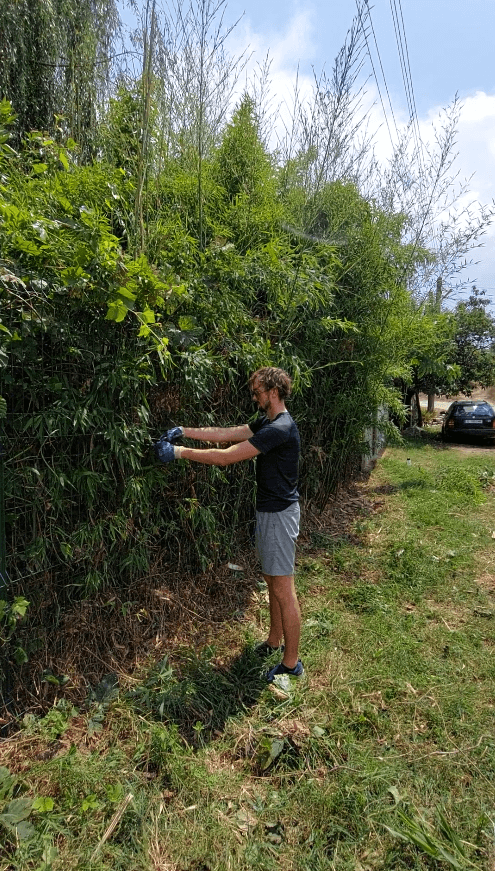
(pic from volunteering in Bulgaria)
How to stay safe when volunteering abroad
We’ve already covered a lot of this when we talked about picking the right host, but there is more you can do to stay safe when volunteering abroad, especially as a beginner volunteer:
- Pick the right host (see this section for tips on how to make sure you don’t make a mistake when picking your host).
- Keep someone posted on your whereabouts and plans. Make sure someone also knows where they can find you – share the host’s name, address and contact details (phone, email etc.) with a reliable family member or a friend. Also, make sure to tell them which platform you booked through. Bonus tip: you can use our one doc safety trick for this.
- Volunteer with a friend. If you don’t feel comfortable volunteering abroad alone, take someone with you. If you don’t have anyone who is willing to go volunteering, try finding like-minded people in Facebook travel or volunteering groups. Another option is using volunteering platforms directly. Many platforms such as HelpX offer an option to look not only for hosts, but also for volunteering friends.
- Have a plan B. If volunteering at your selected host doesn’t go well, what is your plan? Always make sure you have a plan B – somewhere you can go at a moment’s notice. This plan could be something simple, such as knowing the transport in the area, having enough money to book yourself a hotel room or a flight home/to another country.
Side note: To get around Europe we frequently use Flixbus, because we find it often connects towns not served by other bus companies. If you don’t know Flixbus, make sure to check it out. You can see all their destinations on the route map. If you type in your “from” destination, the map will adjust to only show places a bus goes to from that place. A handy feature! - Keep your belongings safe. This is a great £1.34 hack that can save your phone. And if you are wondering how to keep your backpack safe while volunteering abroad, make sure to read this.
- Get travel insurance. We’ll talk about this more below.

A note on volunteering abroad and travel insurance
Travel insurance is crucial when volunteering.
Why?
- You might be doing physical work as a volunteer and injure yourself. It’s best to be covered for such situations.
- Many hosts actually require volunteers to have travel insurance and will ask for proof prior to your arrival. You are their responsibility, if you are working in their home, and they want to make sure you can get treatment if needed.
Something to remember about travel insurance
Not all travel insurance covers volunteering. Also not every travel insurance provider calls such an activity “volunteering”. Some might call it manual work, for example.
You have to make sure the travel insurance you choose covers you for volunteering abroad. Check the list of activities and sports covered by the policy you picked. If in doubt, contact the company directly to ask.
Wondering what company you should choose to cover you as you volunteer abroad for the first time?
We researched 23 insurance providers when choosing the right one for volunteering and full-time travel.
In the end, we actually found two companies whose insurance we are happy with.
If you are not sure who to go with, definitely check out SafetyWing or True Traveller. They are both great, both created by travellers for travellers, and both offer amazing value for money.
And if you need more help choosing the right travel insurance provider, check out these 11 simple questions you should ask – they’ll make the whole process super easy and fast.
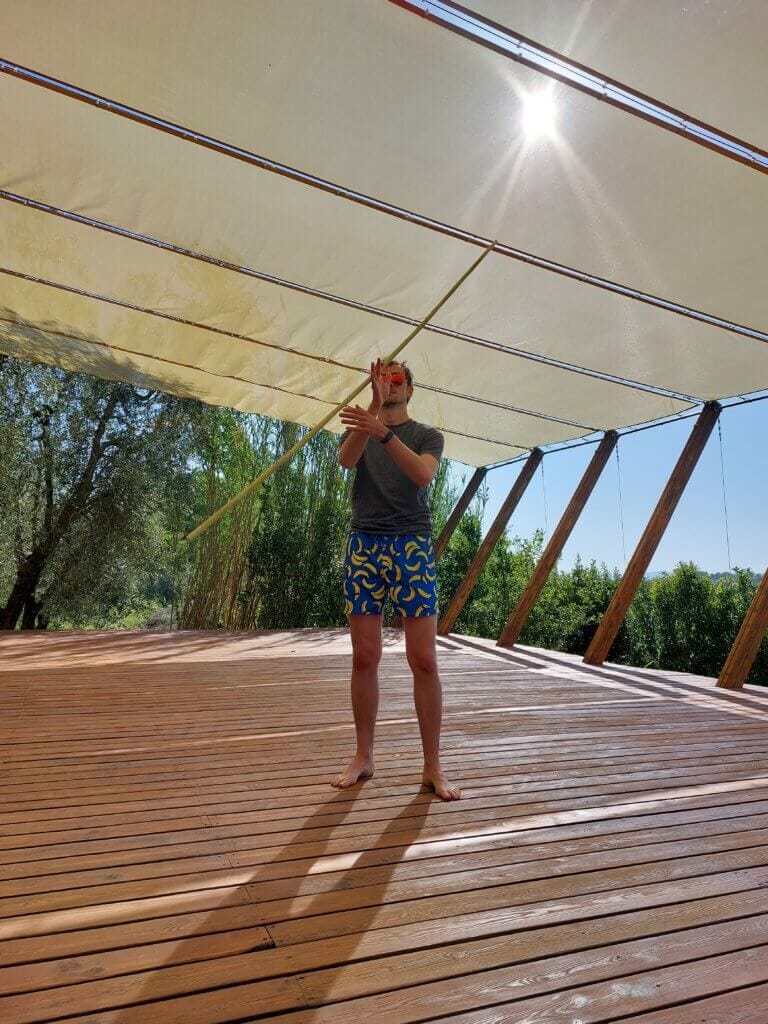
Bonus tip
If you have read this guide and you are still not sure whether you should give volunteering a go (hint: yes, you should!), do this:
Have a look at one of the platforms we listed.
One that lets you see the volunteering opportunities for free, such as HelpX.
Have a browse. On your lunch break. Just to see what is available. What kind of jobs people need help with. Or even just to see how they live. It’s fun. And it might help you decide whether it is something you want to try.
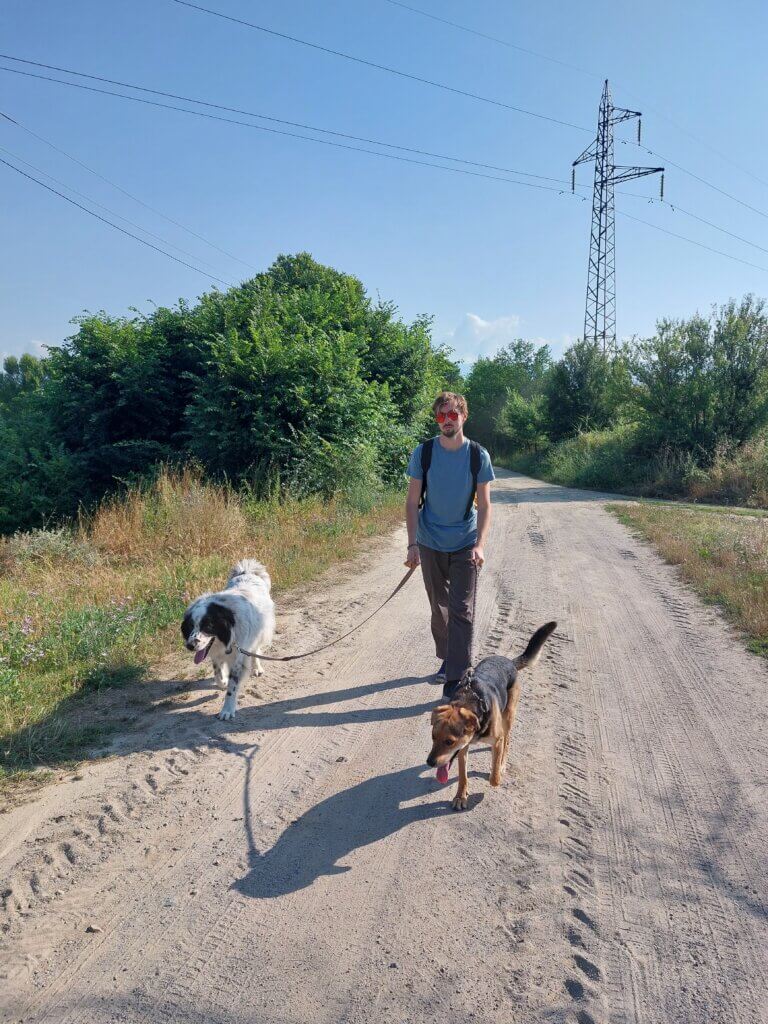
We hope this guide helps you to have an amazing first volunteering experience.
If you have any questions, ask away – in the comments section or just DM us on our Instagram. We are always happy to help!
And if you need more help planning your first volunteering abroad adventure, you can also book a call with us where we can chat about how to make it happen!
Volunteering abroad in a few quick Qs
When volunteering abroad you help out with different tasks for around 4-5 hours, five days a week, in exchange for free food, lodging, and cultural perks like skill-building and local friendships. That’s the general idea – each host is different, so always read their listing first to see if it might be a good fit before reaching out.
Jump on sites like HelpX or Workaway. They list hosts who need hands for different projects. Read reviews to stay safe and avoid bad experiences. Start small; a week or two to see whether it’s the right thing for you – plus you can start gathering references! Pro tip: Chat with hosts first to vibe check the setup.
It depends. Many of the platforms with volunteering opportunities charge a small membership fee. Plus you have to take into account your transport, travel insurance and spending money. Don’t get scammed though – skip shady programmes that charge you for doing work for free.
Not always. Loads of projects just want willing hands and a decent attitude. Of course, if you’re doing something specialised (for example carpentry), then qualifications do matter.
Mostly yes, if you play smart. Pick verified hosts with multiple positive reviews. Share your itinerary with reliable people. Stick to well-connected areas and trust your gut on sketchy vibes. Choose a platform with 24/7 support to feel safer.
Spot red flags early with photos, reviews, and clear communication on expectations. Have a backup plan, like nearby transport options and enough money available for a quick exit.
You sure can! DM us on our Instagram or book a call with us if you want to discuss things in more detail or get advice on your volunteering plans.
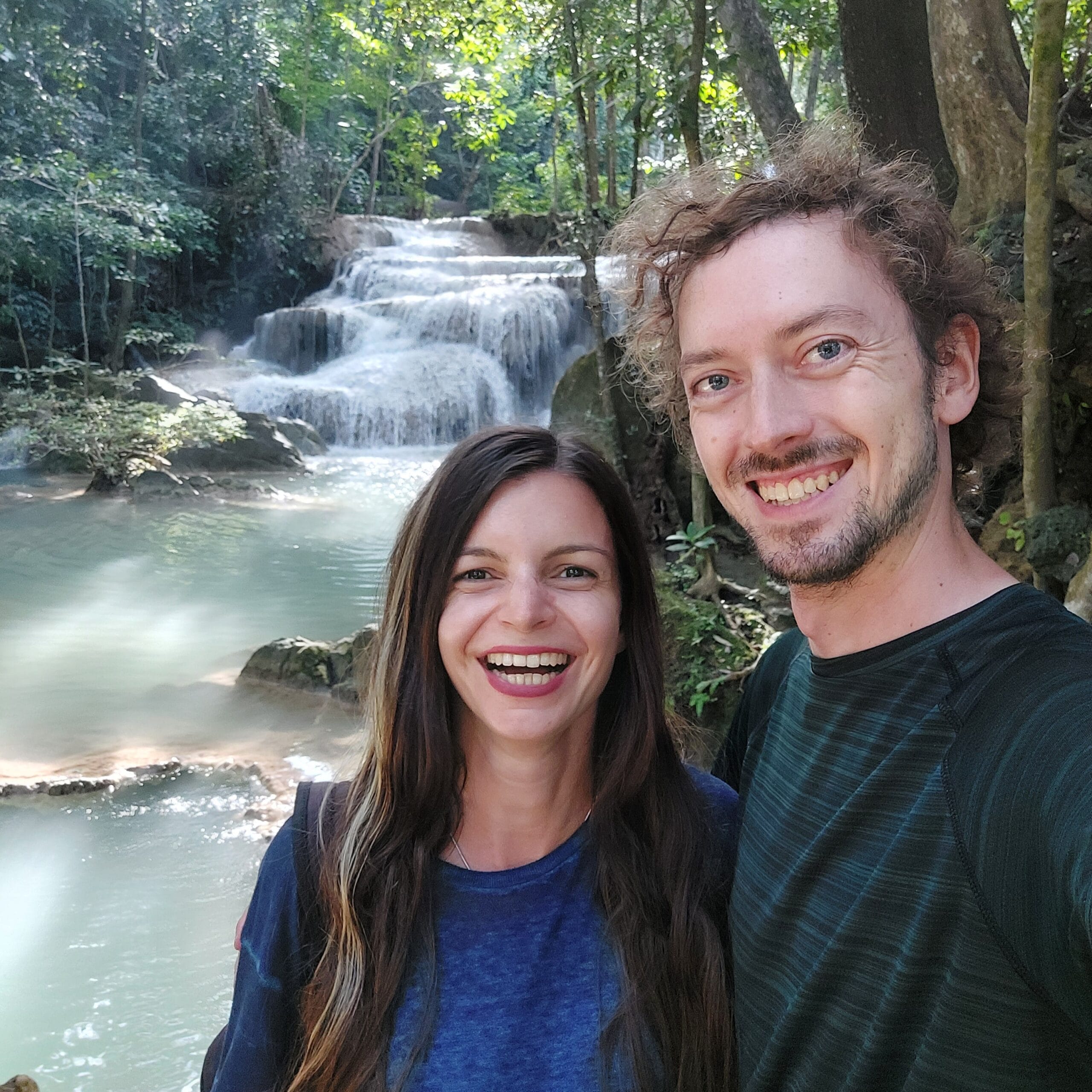
Hi!
We’re Mirka & Daniel — full-time travellers, professional overthinkers & bad luck magnets. We research EVERYTHING and then share all the weird travel tips with you here. Follow along to make your adventures easier! 🌴

